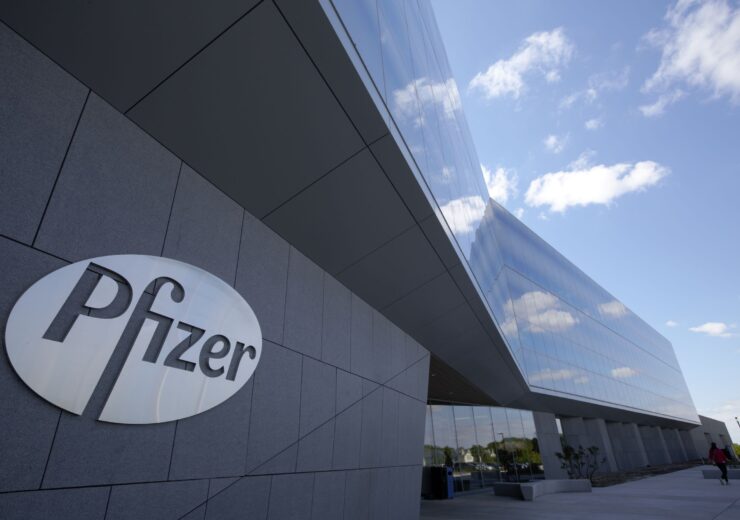Braftovi plus Mektovi is indicated for the treatment of adults with metastatic non-small cell lung cancer (NSCLC) with a BRAF V600E mutation, as detected by an FDA-approved companion diagnostic tests FoundationOne Liquid CDx or FoundationOne CDx

Pfizer’s Chester site exterior. (Credit: Pfizer Inc.)
Pfizer has received the US Food and Drug Administration (FDA) approval for Braftovi (encorafenib) in combination with Mektovi (binimetinib) to treat a type of NSCLC.
The drug combination is indicated for the treatment of adults with metastatic non-small cell lung cancer (NSCLC) with a BRAF V600E mutation, as detected by an FDA-approved test.
BRAF V600E mutations can be evaluated using FDA-approved companion diagnostic tests, FoundationOne Liquid CDx from plasma or FoundationOne CDx from tumour tissue.
Braftovi plus Mektovi is already approved in the US, for the treatment of patients with unresectable or metastatic melanoma with a BRAF V600E or V600K mutation.
Also, Braftovi plus cetuximab is approved in the US, for the treatment of adult patients with metastatic colorectal cancer (CRC) with a BRAF V600E mutation.
Pfizer chief oncology research and development officer and executive vice president Chris Boshoff said: “Today’s approval builds on our long-standing commitment to deliver innovative, personalized medicines to patients with lung cancer.
By pursuing precision medicines that target a patient’s specific type of cancer, we are leveraging our deep understanding of tumour biology to help address the underlying cause of the disease.
“Since its initial FDA approval in 2018, BRAFTOVI + MEKTOVI combination therapy has helped thousands of people living with BRAF V600E- or V600K-mutant unresectable or metastatic melanoma.”
The FDA approval is based on data from the ongoing Phase 2 PHAROS clinical trial, an open-label, multicentre, single‑arm study of Braftovi plus Mektovi combination therapy.
The Phase 2 study met its major efficacy outcome measures of objective response rate (ORR), as assessed by an independent review committee (IRC), and duration of response (DOR).
In treatment-naïve patients, the combination therapy showed an ORR of 75%, and the ORR was 46% for previously treated patients, with a median DOR of 16.7 months.
The most common adverse reactions include fatigue, nausea, diarrhoea, musculoskeletal pain, vomiting, abdominal pain, visual impairment, constipation, dyspnoea, rash, and cough.
PHAROS study investigator Gregory Riely said: “BRAF V600E mutations identify a unique subtype of metastatic non-small cell lung cancer that presents an actionable biomarker that precision medicines like BRAFTOVI + MEKTOVI combination therapy can help address.
“The PHAROS trial demonstrated that these patients could benefit from BRAFTOVI + MEKTOVI targeted therapy regardless of their prior treatment history.
“Given the specific efficacy and safety profile, patients and providers now have another option to help personalize treatment plans based on individual risk factors and preferences.”
Pfizer holds exclusive rights to commercialise Braftovi and Mektovi in the US, Canada, and all countries in Latin America, Africa, and the Middle East.
Japan’s Ono Pharmaceutical commercialises the drug combination in Japan and South Korea, Medison in Israel, and Pierre Fabre in the remaining countries.
